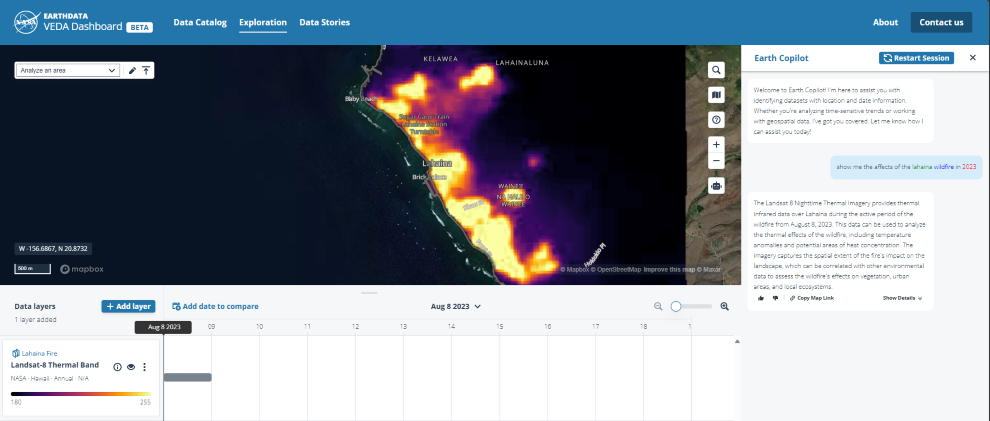General Purpose to Business Critical Azure SQL database upgrade
Recently, we faced a requirement to upgrade large number of Azure SQL databases from general-purpose to business-critical.
As you’re aware, this scaling-up operation can be executed via PowerShell, CLI, or the Azure portal and follow the guidance mentioned here – Failover groups overview & best practices – Azure SQL Managed Instance | Microsoft Learn
Given the need to perform this task across a large number of databases, individually running commands for each server is not practical. Hence, I have created a PowerShell script to facilitate such extensive migrations.
Important consideration:
# This script performs an upgrade of Azure SQL databases to a specified SKU.
# The script also handles geo-replicated databases by upgrading the secondary first, then the primary, and finally any other databases without replication links.
# The script logs the progress and outcome of each database upgrade to the console and a log file.
# Disclaimer: This script is provided as-is, without any warranty or support. Use it at your own risk.
# Before running this script, make sure to test it in a non-production environment and review the impact of the upgrade on your databases and applications.
# The script may take a long time to complete, depending on the number and size of the databases to be upgraded.
# The script may incur additional charges for the upgraded databases, depending on the target SKU and the duration of the upgrade process.
# The script requires the Az PowerShell module and the appropriate permissions to access and modify the Azure SQL databases.
<#
.Description
# This is an upgrade script for upgrading AzureSQL Databases to the desired SKU.
# The script covers various scenarios and performs the following tasks:
# Scenarios being tested:
# 1) Jobs will be executed in parallel.
# 2) The script will upgrade secondary databases first, then the primary.
# 3) Upgrade the database based on the primary listed in the database info list.
# 4) Script will perform the check prior to the migration in case of the role has changed from primary to secondary of the database mentioned in the database info list.
# 5) Upgrade individual databases in case of no primary/secondary found for a given database.
# 6) Upgrade the database if secondary is upgraded but primary has not been upgraded. Running the script again will skip the secondary and upgrade the primary database.
# In other words, SLO mismatch will be handled based on the SKU defined in the database info list.
# 7) Track the database progress and display the progress in the console.
##Database info list is required in order to perform an upgrade:
DatabaseName: Name of the database to be upgraded.
PartnerResourceGroupName: Name of the resource group where the secondary database is located.
ServerName: Name of the server where the primary database is located.
ResourceGroupName : Name of the resource group where the primary database is located
RequestedServiceObjectiveName: Desired SKU to be upgraded to.
#>
# Define the list of database information
$DatabaseInfoList = @(
#@{ DatabaseName = ‘{DatabaseName}’; PartnerResourceGroupName = ‘{PartnerResourcegroupName}’; ServerName = ‘{ServerName}’ ; ResourceGroupName = ‘{ResourceGroupName}’; RequestedServiceObjectiveName = ‘{SLODetails}’; subscriptionID = ‘{SubscriptionID}’ }
)
# Define the script block that performs the update
$ScriptBlock = {
param (
$DatabaseInfo
)
Set-AzContext -subscriptionId $DatabaseInfo.subscriptionID
###store output in txt file
$OutputFilePath = “C:temp$($DatabaseInfo.DatabaseName)_$($env:USERNAME)_$($Job.Id)_Output.txt”
$OutputCapture = @()
$OutputCapture += “Database: $($DatabaseInfo.DatabaseName)”
$ReplicationLink = Get-AzSqlDatabaseReplicationLink -DatabaseName $DatabaseInfo.DatabaseName -PartnerResourceGroupName $DatabaseInfo.PartnerResourceGroupName -ServerName $DatabaseInfo.ServerName -ResourceGroupName $DatabaseInfo.ResourceGroupName
$PrimaryServerRole = $ReplicationLink.Role
$PrimaryResourceGroupName = $ReplicationLink.ResourceGroupName
$PrimaryServerName = $ReplicationLink.ServerName
$PrimaryDatabaseName = $ReplicationLink.DatabaseName
$PartnerRole = $ReplicationLink.PartnerRole
$PartnerServerName = $ReplicationLink.PartnerServerName
$PartnerDatabaseName = $ReplicationLink.PartnerDatabaseName
$PartnerResourceGroupName = $ReplicationLink.PartnerResourceGroupName
$UpdateSecondary = $false
$UpdatePrimary = $false
if ($PartnerRole -eq “Secondary” -and $PrimaryServerRole -eq “Primary”) {
$UpdateSecondary = $true
$UpdatePrimary = $true
}
#For Failover Scenarios only
elseif ($PartnerRole -eq “Primary” -and $PrimaryServerRole -eq “Secondary”) {
$UpdateSecondary = $true
$UpdatePrimary = $true
$PartnerRole = $ReplicationLink.Role
$PartnerServerName = $ReplicationLink.ServerName
$PartnerDatabaseName = $ReplicationLink.DatabaseName
$PartnerResourceGroupName = $ReplicationLink.ResourceGroupName
$PrimaryServerRole = $ReplicationLink.PartnerRole
$PrimaryResourceGroupName = $ReplicationLink.PartnerResourceGroupName
$PrimaryServerName = $ReplicationLink.PartnerServerName
$PrimaryDatabaseName = $ReplicationLink.PartnerDatabaseName
}
Try
{
if ($UpdateSecondary) {
$DatabaseProperties = Get-AzSqlDatabase -ResourceGroupName $PartnerResourceGroupName -ServerName $PartnerServerName -DatabaseName $PartnerDatabaseName
#$DatabaseEdition = $DatabaseProperties.Edition
$DatabaseSKU = $DatabaseProperties.RequestedServiceObjectiveName
if ($DatabaseSKU -ne $DatabaseInfo.RequestedServiceObjectiveName) {
Write-host “Secondary started at $(Get-Date) of DB $UpdateSecondary”
$OutputCapture += “Secondary started at $(Get-Date) of DB $UpdateSecondary”
Set-AzSqlDatabase -ResourceGroupName $PartnerResourceGroupName -DatabaseName $PartnerDatabaseName -ServerName $PartnerServerName -Edition “BusinessCritical” -RequestedServiceObjectiveName $DatabaseInfo.RequestedServiceObjectiveName
Write-host “Secondary end at $(Get-Date)”
$OutputCapture += “Secondary end at $(Get-Date)”
# Start Track Progress
$activities = Get-AzSqlDatabaseActivity -ResourceGroupName $PartnerResourceGroupName -ServerName $PartnerServerName -DatabaseName $PartnerDatabaseName |
Where-Object {$_.State -eq “InProgress” -or $_.State -eq “Succeeded” -or $_.State -eq “Failed”} | Sort-Object -Property StartTime -Descending | Select-Object -First 1
if ($activities.Count -gt 0) {
Write-Host “Operations in progress or completed for $($PartnerDatabaseName):”
$OutputCapture += “Operations in progress or completed for $($PartnerDatabaseName):”
foreach ($activity in $activities) {
Write-Host “Activity Start Time: $($activity.StartTime) , Activity Estimated Completed Time: $($activity.EstimatedCompletionTime) , Activity ID: $($activity.OperationId), Server Name: $($activity.ServerName), Database Name: $($activity.DatabaseName), Status: $($activity.State), Percent Complete: $($activity.PercentComplete)%, Description: $($activity.Description)”
$OutputCapture += “Activity Start Time: $($activity.StartTime) , Activity Estimated Completed Time: $($activity.EstimatedCompletionTime) , Activity ID: $($activity.OperationId), Server Name: $($activity.ServerName), Database Name: $($activity.DatabaseName), Status: $($activity.State), Percent Complete: $($activity.PercentComplete)%, Description: $($activity.Description)”
}
Write-Host “$PartnerDatabaseName Upgrade Successfully Completed!”
$OutputCapture += “$PartnerDatabaseName Upgrade Successfully Completed!”
} else {
Write-Host “No operations in progress or completed for $($PartnerDatabaseName)”
$OutputCapture += “No operations in progress or completed for $($PartnerDatabaseName)”
}
# End Track Progress
#
}
else {
Write-host “Database $PartnerDatabaseName is already upgraded.”
$OutputCapture += “Database $PartnerDatabaseName is already upgraded.”
}
}
if ($UpdatePrimary) {
$DatabaseProperties = Get-AzSqlDatabase -ResourceGroupName $PrimaryResourceGroupName -ServerName $PrimaryServerName -DatabaseName $PrimaryDatabaseName
# $DatabaseEdition = $DatabaseProperties.Edition
$DatabaseSKU = $DatabaseProperties.RequestedServiceObjectiveName
if ($DatabaseSKU -ne $DatabaseInfo.RequestedServiceObjectiveName){
Write-host “Primary started at $(Get-Date) of DB $UpdatePrimary”
$OutputCapture += “Primary started at $(Get-Date) of DB $UpdatePrimary”
Set-AzSqlDatabase -ResourceGroupName $PrimaryResourceGroupName -DatabaseName $PrimaryDatabaseName -ServerName $PrimaryServerName -Edition “BusinessCritical” -RequestedServiceObjectiveName $DatabaseInfo.RequestedServiceObjectiveName
Write-host “Primary end at $(Get-Date)”
$OutputCapture += “Primary end at $(Get-Date)”
# Start Track Progress
$activities = Get-AzSqlDatabaseActivity -ResourceGroupName $PrimaryResourceGroupName -ServerName $PrimaryServerName -DatabaseName $PrimaryDatabaseName |
Where-Object {$_.State -eq “InProgress” -or $_.State -eq “Succeeded” -or $_.State -eq “Failed”} | Sort-Object -Property StartTime -Descending | Select-Object -First 1
if ($activities.Count -gt 0) {
Write-Host “Operations in progress or completed for $($PrimaryDatabaseName):”
$OutputCapture += “Operations in progress or completed for $($PrimaryDatabaseName):”
foreach ($activity in $activities) {
Write-Host “Activity Start Time: $($activity.StartTime) , Activity Estimated Completed Time: $($activity.EstimatedCompletionTime) , Activity ID: $($activity.OperationId), Server Name: $($activity.ServerName), Database Name: $($activity.DatabaseName), Status: $($activity.State), Percent Complete: $($activity.PercentComplete)%, Description: $($activity.Description)”
$OutputCapture += “Activity Start Time: $($activity.StartTime) , Activity Estimated Completed Time: $($activity.EstimatedCompletionTime) , Activity ID: $($activity.OperationId), Server Name: $($activity.ServerName), Database Name: $($activity.DatabaseName), Status: $($activity.State), Percent Complete: $($activity.PercentComplete)%, Description: $($activity.Description)”
}
Write-Host “$PrimaryDatabaseName Upgrade Successfully Completed!”
$OutputCapture += “$PrimaryDatabaseName Upgrade Successfully Completed!”
} else {
Write-Host “No operations in progress or completed for $($PrimaryDatabaseName)”
$OutputCapture += “No operations in progress or completed for $($PrimaryDatabaseName)”
}
# End Track Progress
#
}
else {
Write-host “Database $PrimaryDatabaseName is already upgraded.”
$OutputCapture += “Database $PrimaryDatabaseName is already upgraded.”
}
}
if (!$UpdateSecondary -and !$UpdatePrimary) {
$DatabaseProperties = Get-AzSqlDatabase -ResourceGroupName $DatabaseInfo.ResourceGroupName -ServerName $DatabaseInfo.ServerName -DatabaseName $DatabaseInfo.DatabaseName
# $DatabaseEdition = $DatabaseProperties.Edition
$DatabaseSKU = $DatabaseProperties.RequestedServiceObjectiveName
If ($DatabaseSKU -ne $DatabaseInfo.RequestedServiceObjectiveName) {
Write-Host “No Replica Found.”
$OutputCapture += “No Replica Found.”
Write-host “Upgrade started at $(Get-Date)”
$OutputCapture += “Upgrade started at $(Get-Date)”
Set-AzSqlDatabase -ResourceGroupName $DatabaseInfo.ResourceGroupName -DatabaseName $DatabaseInfo.DatabaseName -ServerName $DatabaseInfo.ServerName -Edition “BusinessCritical” -RequestedServiceObjectiveName $DatabaseInfo.RequestedServiceObjectiveName
Write-host “Upgrade completed at $(Get-Date)”
$OutputCapture += “Upgrade completed at $(Get-Date)”
# Start Track Progress
$activities = Get-AzSqlDatabaseActivity -ResourceGroupName $DatabaseInfo.ResourceGroupName -ServerName $DatabaseInfo.ServerName -DatabaseName $DatabaseInfo.DatabaseName |
Where-Object {$_.State -eq “InProgress” -or $_.State -eq “Succeeded” -or $_.State -eq “Failed”} | Sort-Object -Property StartTime -Descending | Select-Object -First 1
if ($activities.Count -gt 0) {
Write-Host “Operations in progress or completed for $($DatabaseInfo.DatabaseName):”
$OutputCapture += “Operations in progress or completed for $($DatabaseInfo.DatabaseName):”
foreach ($activity in $activities) {
Write-Host “Activity Start Time: $($activity.StartTime) , Activity Estimated Completed Time: $($activity.EstimatedCompletionTime) , Activity ID: $($activity.OperationId), Server Name: $($activity.ServerName), Database Name: $($activity.DatabaseName), Status: $($activity.State), Percent Complete: $($activity.PercentComplete)%, Description: $($activity.Description)”
$OutputCapture += “Activity Start Time: $($activity.StartTime) , Activity Estimated Completed Time: $($activity.EstimatedCompletionTime) , Activity ID: $($activity.OperationId), Server Name: $($activity.ServerName), Database Name: $($activity.DatabaseName), Status: $($activity.State), Percent Complete: $($activity.PercentComplete)%, Description: $($activity.Description)”
}
Write-Host ” “$DatabaseInfo.DatabaseName” Upgrade Successfully Completed!”
$OutputCapture += “$($DatabaseInfo.DatabaseName) Upgrade Successfully Completed!”
} else {
Write-Host “No operations in progress or completed for $($DatabaseInfo.DatabaseName)”
$OutputCapture += “No operations in progress or completed for $($DatabaseInfo.DatabaseName)”
}
# End Track Progress
# Write-Host ” “$DatabaseInfo.DatabaseName” Upgrade Successfully Completed!”
}
else {
Write-host “Database “$DatabaseInfo.DatabaseName” is already upgraded.”
$OutputCapture += “Database $($DatabaseInfo.DatabaseName) is already upgraded.”
}
$OutputCapture += “Secondary started at $(Get-Date) of DB $UpdateSecondary”
}
}
Catch
{
# Catch any error
Write-Output “Error occurred: $_”
$OutputCapture += “Error occurred: $_”
}
Finally
{
Write-Host “Upgrade Successfully Completed!”
$OutputCapture += “Upgrade Successfully Completed!”
# Output the captured messages to the file
$OutputCapture | Out-File -FilePath $OutputFilePath
}
}
# Loop through each database and start a background job
foreach ($DatabaseInfo in $DatabaseInfoList) {
Start-Job -ScriptBlock $ScriptBlock -ArgumentList $DatabaseInfo
}
# Wait for all background jobs to complete
Get-Job | Wait-Job
# Retrieve and display job results
#Get-Job | Receive-Job
Get-Job | ForEach-Object {
$Job = $_
$OutputFilePath = “C:temp$($Job.Id)_Output.txt”
Receive-Job -Job $Job | Out-File -FilePath $OutputFilePath # Append job output to the text file
}
# Clean up background jobs
Get-Job | Remove-Job -Force
write-host “Execution Completed successfully.”
$OutputCapture += “Execution Completed successfully.”
Microsoft Tech Community – Latest Blogs –Read More











